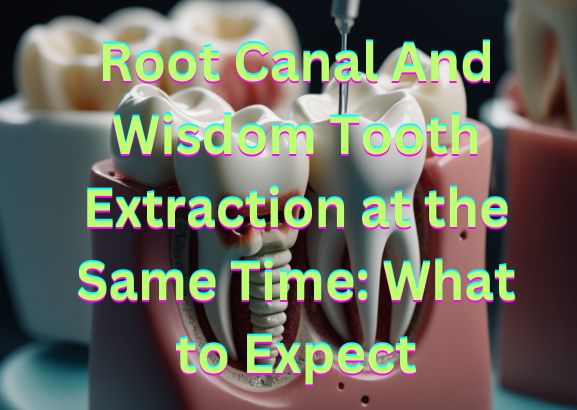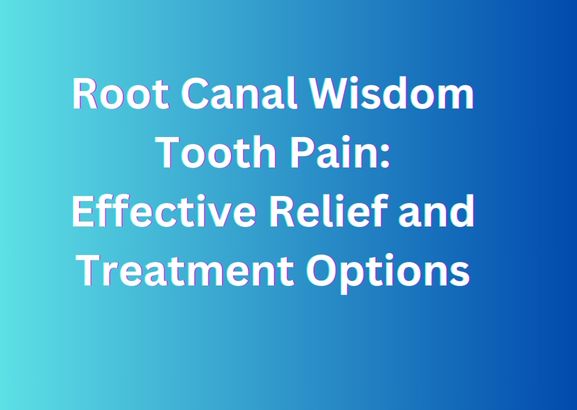Relieve Jaw Pain After Wisdom Tooth Removal with These Power Techniques
Last Updated on 6 months by DR. ALBIN SIPES
After wisdom tooth removal, it is common to experience jaw pain. This discomfort is a normal part of the healing process.
Introducing the subject of jaw pain after wisdom tooth removal, it is important to recognize that this type of discomfort is a usual occurrence following the extraction procedure. Wisdom tooth extraction is a common dental procedure aimed at removing impacted or problematic third molars.
While the surgery itself is relatively straightforward, the healing process can sometimes involve jaw pain. This discomfort is typically experienced due to the and can be managed with proper care and pain relief medications, as recommended by your dentist or oral surgeon. Understanding the reasons behind jaw pain after wisdom tooth removal can help individuals cope with and alleviate this temporary discomfort more effectively.

Credit: www.amazon.com
Rest And Ice
Applying ice packs to your jaw after wisdom tooth removal can help reduce swelling and alleviate pain. Ice helps to constrict blood vessels and numb the area, providing relief. It is recommended to apply ice packs for 20 minutes at a time, with breaks in between.
This process can be repeated every few hours for the first 24 to 48 hours after the surgery. Rest is equally important for a smooth recovery. Avoid strenuous activities and rest your jaw as much as possible. This will aid in reducing inflammation and promoting healing.
Don’t rush the recovery process, take your time to rest and use ice packs consistently for the best results.
Gentle Jaw Exercises
Jaw exercises can be a helpful way to alleviate pain after wisdom tooth removal. By engaging in gentle jaw exercises, you can promote healing and reduce discomfort. These exercises offer several benefits, such as improving blood flow, reducing inflammation, and preventing stiffness.
Performing jaw exercises step-by-step is important to ensure proper technique and maximize the benefits. Start by opening and closing your mouth slowly, then move on to gentle side-to-side movements and forward and backward movements. It is essential to listen to your body and avoid any exercises that cause excessive pain or discomfort.
Remember to perform these exercises regularly, following your dentist’s recommendations, to achieve the best results and relieve jaw pain effectively.
Heat Therapy
Heat therapy can be a helpful method to alleviate jaw pain following wisdom tooth removal. By using heat, you can increase blood flow to the area, reducing inflammation and promoting healing. There are various types of heat therapy that can be used, such as warm compresses or heat packs.
To apply heat therapy effectively and safely, ensure that the temperature is not too hot to avoid burns. Start by wrapping a warm towel or cloth around the jaw area for around 15-20 minutes at a time. Repeat this process several times a day as needed.
Heat therapy can provide relief and comfort, helping to ease the discomfort and soreness experienced after wisdom tooth extraction.
Medication Options
After having your wisdom teeth removed, it is common to experience jaw pain. There are different medication options available to help alleviate the discomfort. Over-the-counter pain relievers can provide relief for jaw pain. Prescription medications are also effective in managing the pain after wisdom tooth removal.
However, it is important to take precautions and be aware of the potential side effects of these medications. It is recommended to follow the instructions provided by your dentist or oral surgeon and consult with them if you have any concerns.
Taking medication as prescribed and following proper aftercare instructions can help you recover comfortably and minimize any jaw pain you may experience. Remember to always seek professional medical advice before taking any medication.
Soft Diet Tips
Following wisdom tooth extraction, it is important to adhere to a soft diet. Soft foods alleviate pain and minimize discomfort in the jaw. Opt for nourishing choices to aid in the healing process. Including foods like mashed potatoes, yogurt, and smoothies can provide essential nutrients while being gentle on the jaw.
Additionally, it is crucial to avoid hard, sticky, or chewy foods, as they can cause irritation and delay the healing process. Opt for easy recipe ideas such as soups, pureed vegetables, and protein shakes for a balanced and nutritious soft diet.
By following these tips, you can promote healing, reduce jaw pain, and ensure a smooth recovery after wisdom tooth removal.
Relaxation Techniques
Jaw pain is a common aftereffect of wisdom tooth removal, but there are ways to find relief. Practicing relaxation techniques can help ease the discomfort and promote healing. Incorporating these techniques into your daily routine can also provide long-term relief.
Some effective relaxation techniques to try at home include deep breathing exercises, progressive muscle relaxation, and guided imagery. Deep breathing helps relax the body and reduce tension in the jaw muscles. Progressive muscle relaxation involves slowly tensing and then releasing each muscle group in the body.
Guided imagery uses visualization to create a calm and peaceful state of mind. By incorporating these techniques into your daily routine, you can reduce jaw pain and promote healing after wisdom tooth removal.
Natural Remedies
Jaw pain after wisdom tooth extraction can be debilitating, but natural remedies can provide relief. Many herbal supplements have shown potential benefits in reducing jaw discomfort. However, it is important to consider safety precautions when using natural remedies. Gently massaging the jaw with warm compresses can alleviate soreness.
Applying ice packs can help reduce inflammation and swelling. Over-the-counter pain relievers like ibuprofen can also provide temporary relief. Opting for a soft food diet can prevent further irritation to the jaw. Maintaining good oral hygiene with gentle brushing and rinsing with warm saltwater can promote healing.
In severe cases, consulting a healthcare professional is crucial for proper diagnosis and treatment. Natural remedies should always be used with caution and under professional guidance to ensure effective and safe relief.
Stress Management
Jaw pain following wisdom tooth removal can be made worse by stress. Stress directly affects our bodies and can manifest as physical discomfort. To alleviate this pain, stress management techniques should be implemented. These techniques can include deep breathing exercises, meditation, and engaging in relaxing activities.
It is also crucial to create a stress-free environment during the recovery process. This may involve minimizing external stressors, such as noise or demanding tasks, and focusing on self-care. Taking the time to rest and prioritize one’s well-being can contribute to optimal recovery.
By effectively managing stress and creating a peaceful environment, individuals can ease the discomfort associated with jaw pain after wisdom tooth removal.
Dental Hygiene Practices
Maintaining good oral hygiene during your recovery from wisdom tooth removal is essential to minimize any discomfort. After the procedure, it’s important to brush and floss gently to avoid irritating the sensitive areas. Be mindful of your brushing technique, using soft bristles and circular motions.
Additionally, consider using a mouthwash that’s gentle and alcohol-free to help reduce bacteria and promote healing. Avoid habits that can exacerbate jaw pain, such as biting into hard or tough foods, smoking, or excessive talking. By following these tips and taking proper care of your oral hygiene, you can support the healing process and minimize any discomfort.
Remember, while recovery can be uncomfortable, maintaining good oral hygiene is crucial for a smooth healing process.
Frequently Asked Questions For Jaw Hurts After Wisdom Tooth Removal
Why Does My Jaw Hurt After Wisdom Tooth Removal?
After wisdom tooth removal, jaw pain is common due to inflammation and swelling in the area. The procedure can cause trauma to the surrounding tissues and muscles, leading to discomfort. Applying ice packs, taking pain medication, and following post-operative instructions can help alleviate the pain.
How Long Does Jaw Pain Last After Wisdom Tooth Removal?
Jaw pain after wisdom tooth removal can vary for each individual, but it typically lasts for a few days to a week. It is important to follow proper aftercare instructions, such as maintaining good oral hygiene, taking prescribed medications, and avoiding hard or chewy foods to aid in the healing process.
When Should I Be Concerned About Jaw Pain After Wisdom Tooth Removal?
While some discomfort is normal, you should be concerned about jaw pain after wisdom tooth removal if it worsens over time or if you experience intense, throbbing pain that is not relieved by medication. Additionally, any signs of infection, such as fever, swelling, or discharge, should be taken seriously and reported to your dentist or oral surgeon.
How Can I Alleviate Jaw Pain After Wisdom Tooth Removal?
To alleviate jaw pain after wisdom tooth removal, you can try applying ice packs to the affected area for 15-minute intervals throughout the day. Over-the-counter pain medication, as advised by your dentist, can also provide relief. Remember to maintain a soft diet, avoid strenuous activities, and keep your mouth clean to aid in the healing process.
Conclusion
In this blog post, we have discussed the common issue of jaw pain experienced after wisdom tooth removal. We explored the reasons behind this discomfort, such as the natural healing process, inflammation, and post-surgical swelling. It’s important to remember that every individual’s recovery is unique, and there is no fixed timeline for the resolution of jaw pain.
However, by following the advice of your oral surgeon and taking the prescribed medications, you can manage the discomfort effectively. Additionally, applying cold compresses, using over-the-counter pain relievers, and maintaining proper oral hygiene can aid in your recovery. It is crucial to be patient during this period and reach out to your dentist if the pain becomes severe or persists for an extended period.
Remember, achieving relief from jaw pain after wisdom tooth removal is possible, and you will soon be able to enjoy your healthy, pain-free smile again.



